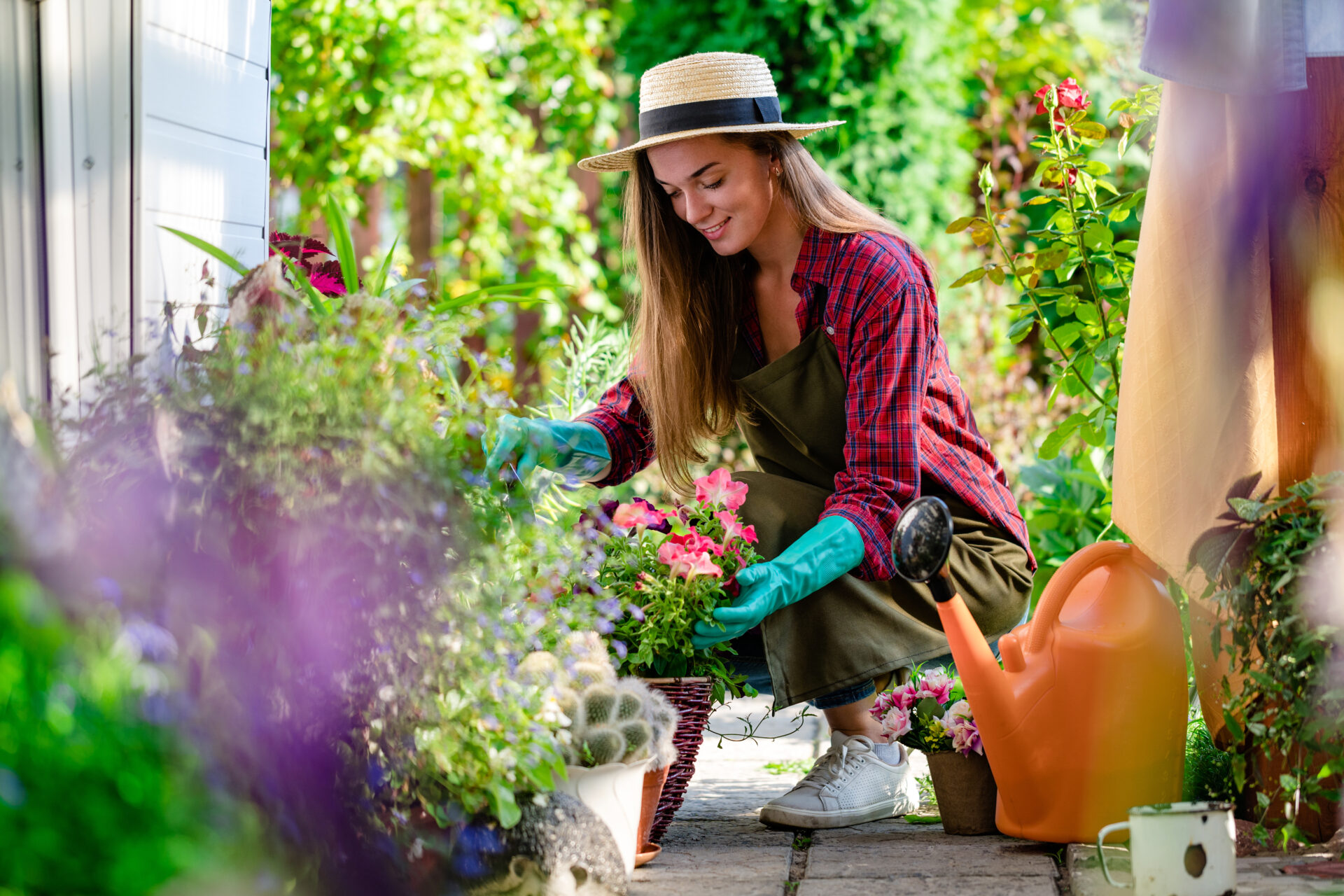Sometimes you need to just stop and smell the roses. As you tilt your head down towards the buds and deeply inhale, you may notice that some of your anxieties and worries have been released from your body and mind – even if only for a moment. While floral scents may have their own slew of positive mental health benefits, did you know that the actual practice of gardening and growing your own flowers (or vegetables and fruits!) can have similar effects?
Mental Health Benefits of Gardening
Research has shown that gardening may lead to the following health benefits:
1. Improving your mood. Studies have shown that interacting with nature, especially while being near water, can increase self-esteem, improve your mood, reduce anger and boost an individual’s overall psychological well-being. Additionally, vitamin D has been shown to decrease levels of depression.
2. Developing a growth mindset. According to the Harvard Business Review, a growth mindset is one in which individuals believe that their talents can be continually worked on through hard work, efficient strategies and even positive criticism. Additionally, you may discover that you need to be flexible, patient and resilient in your new hobby.

3. Engaging in physical activity. The Centers for Disease Control and Prevention (CDC) technically classifies 30 minutes or more of gardening as exercise. In fact, some studies have shown that gardening between 30 to 45 minutes per day can burn up to 300 calories between the digging of holes, yanking of weeds and raking of topsoil.
4. Eating healthier. Many gardeners choose to grow their own fresh fruits or vegetables which become staples in their own at-home dishes! By indulging in a diet that’s higher in whole foods – like fruits and vegetables – research has found that individuals are 35% less likely to develop depression than others who eat less of these foods. The foods that we eat have a significant impact on not just our physical body, but our overall mental health, too.
5. Developing a better self-care routine. You may start to care for your own self in the same sense by ensuring that you get better sleep, for instance, or by relaxing on certain nights and creating a mini at-home spa experience.
How to Start Gardening
If you’re ready to begin gardening, the following steps may help:
- Stop hesitating – and just start!
- Don’t overwhelm yourself with too many plants.
- Consider researching “starter” plants that are typically easy for beginners, such as seasonal petunias.
- Cultivate healthy soil.
- Grow what you like and you will thoroughly enjoy watching it bloom.
- Research your plants’ needs, such as levels of sun, moisture and overall environments.
- Pay attention to your plants.
- Use your phone to set reminders or to even create a watering schedule – and even consider downloading helpful gardening apps.
For more information about our mental health services, please call 844-4-ACENDA (844-422-3632 x9500).
Sources:
https://agrilifetoday.tamu.edu/2020/05/18/gardening-can-influence-and-benefit-your-mental-health/
https://healthymindsphilly.org/blog/impact-of-gardening-on-mental-health/